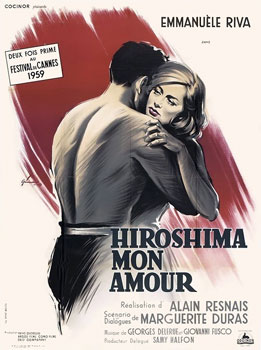 |
| Susan Strasberg, Didi Perego, and Emmanuelle Riva in Kapò |
Sascha: Laurent Terzieff
Terese: Emmanuelle Riva
Sofia: Didi Perego
Karl: Gianni Garko
Director: Gillo Pontecorvo
Screenplay: Gillo Pontecorvo, Franco Solinas
Cinematography: Aleksandar Sekulovic
Production design: Aleksandar Milovic
Film editing: Roberto Cinquini, Anhela Micheli
Music: Carlo Rustichelli
As a rule, filmmakers should be discouraged from using the Holocaust as a backdrop for film dramas -- or worse, as in the case of Roberto Benigni's Life Is Beautiful (1997), comedies. The enormity of the Shoah inevitably undercuts even the most heartfelt attempts to dramatize it -- and I would include, even though it's a film I admire, Steven Spielberg's Schindler's List (1993). Gillo Pontecorvo is a filmmaker whose The Battle of Algiers (1966) exhibits a real skill at portraying moral complexity, and I think he's striving for something like that in Kapò, which depicts a Jewish girl's desperate attempt to survive, even to the extent of prostituting herself to the SS and serving as a bullying kapo in the concentration camp to which she has been sent. Unfortunately, Pontecorvo muddles the moral questions the film raises by resorting to romantic melodrama, when Edith, his protagonist, who has taken on the identity of a dead prisoner to hide the fact that she's Jewish, falls in love with a Russian POW. Even before then, the film displays narrative thinness: Edith's escape from the building in which she and other children are held prior to being sent to the gas chambers is altogether too easy, and the fortuitous way in which she finds a prisoner and a camp doctor willing to help her disguise herself stretches credulity. Slight, pretty Susan Strasberg also feels miscast as the girl who turns overnight from a shy waif into a tough prison camp enforcer. It was almost a case of "stunt casting": Strasberg originated the role of Anne Frank in the 1955 Broadway dramatization of The Diary of Anne Frank, but was judged too old for the role in the 1959 film version directed by George Stevens. Her casting in Kapò looks a bit like an attempt to make amends.

